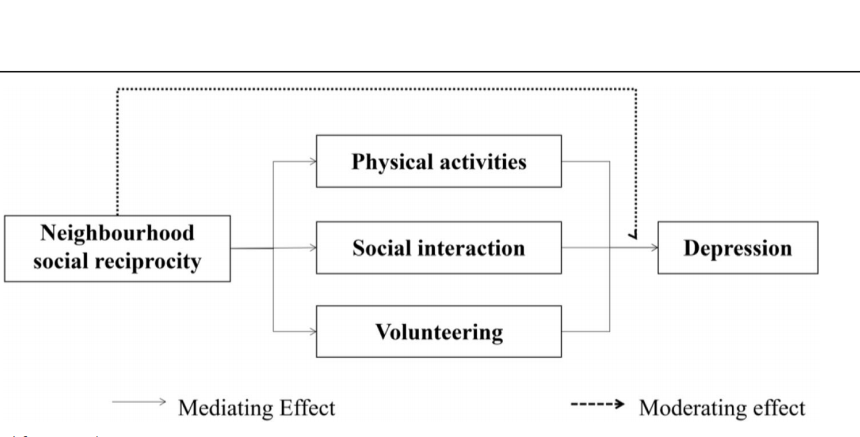Abstract
Background: This study aims to investigate the mechanisms through which neighborhood social reciprocity influences older adults' mental health in China. Methods: This study used data from the 2011-2015 waves of the China Health and Retirement Longitudinal Study. It estimated the effects of neighborhood social reciprocity on older adults' mental health and tested the mediating effects of the frequencies of physical activity, social interaction with neighbors, and volunteering experience. Results: The results indicated that more neighborhood social reciprocity related to better mental health. The effects of the three mediators were statistically significant and enhanced mental health. In addition, the effects of the mediators were strengthened by neighborhood social reciprocity, and vice versa. Conclusions: In China, neighborhood social reciprocity influenced older adults' mental health directly and through the mechanisms of the frequencies of physical activity, social interaction with neighbors, and volunteering experience.

Q.E.D.









